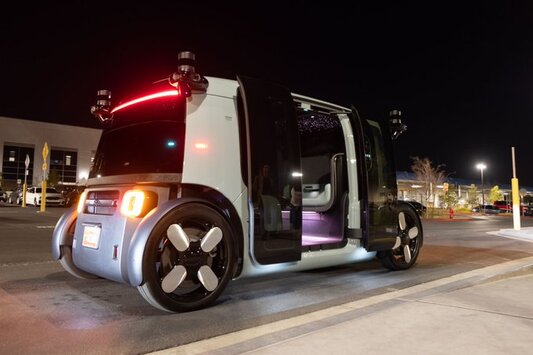
Zoox, Amazon’s innovative autonomous vehicle subsidiary, recently issued a voluntary robotaxi software recall following a crash involving one of its self-driving cars in Las Vegas. If you're wondering why Zoox recalled its vehicles or how safe robotaxis are today, here’s everything you need to know. The incident highlights new challenges in autonomous driving technology and raises critical questions about robotaxi safety, self-driving car insurance, and the reliability of automated driving systems on public roads.
On April 8, 2025, a Zoox autonomous vehicle collided with a passenger car in Las Vegas. According to official filings with the National Highway Traffic Safety Administration (NHTSA), the crash occurred because Zoox’s self-driving system inaccurately predicted the movement of a vehicle entering from a driveway. Although the Zoox robotaxi braked hard, it was unable to avoid minor contact. Fortunately, no injuries were reported, and only slight vehicle damage occurred.
Following the incident, Zoox voluntarily recalled approximately 270 vehicles equipped with the affected version of its automated driving system (ADS). It’s important to note that this figure does not represent the entire Zoox fleet. The recall targeted a specific software update that, if left unresolved, could increase the risk of future crashes.
Zoox acted quickly by suspending all driverless testing operations on the day of the crash. The company launched a full internal review and worked to release a critical software update addressing the ADS issue. Testing resumed on April 17, after all Zoox vehicles received the update. Zoox reported full compliance with federal safety regulations throughout the process, reaffirming its commitment to robotaxi safety and self-driving car regulations.
This recall marks the second time Zoox has voluntarily pulled vehicles from operation this year. In March 2025, the company recalled 258 vehicles after discovering a separate issue that caused unexpected hard braking during autonomous driving.
Zoox continues testing its purpose-built robotaxis, which notably lack steering wheels or pedals, in major cities like Las Vegas and San Francisco. Along the Las Vegas Strip, robotaxi trials have already included employees, media representatives, and other vetted participants. In addition to robotaxis, Zoox also tests retrofitted Toyota Highlanders equipped with its ADS technology in urban areas such as Austin, Miami, and Seattle—with human safety operators present.
Despite the recent recall, Zoox remains committed to launching its commercial robotaxi service in Las Vegas later this year. A company spokesperson confirmed that preparations for public launch are on schedule, emphasizing the company's belief in the future of fully autonomous ride-hailing services.
Consumers and businesses exploring self-driving car insurance, fleet management, and smart city transportation solutions often ask: "How safe are robotaxis like Zoox?" While autonomous vehicle technology is rapidly advancing, incidents like this crash demonstrate that perfect predictive capabilities are still a work in progress. However, Zoox’s swift response—pausing testing, issuing a voluntary recall, and deploying a software fix—suggests a strong commitment to safety and regulatory transparency.
Last year, the NHTSA launched a preliminary investigation into Zoox after two reported incidents involving motorcyclists who collided with Zoox-operated Highlanders. Both vehicles were operating autonomously at the time. These earlier cases, combined with the recent crash, reflect the broader industry challenge of ensuring that autonomous vehicles can accurately interpret and react to human-driven traffic in dynamic environments.
The Zoox recall raises important considerations for the future of robotaxi services, especially as companies like Zoox, Waymo, and Cruise race to commercialize their technology. Reliability, insurance policies for autonomous vehicles, urban infrastructure planning, and public trust will all play significant roles.
For consumers, businesses, and investors watching the autonomous mobility market, the Zoox recall is a reminder that even the most advanced self-driving systems must continually adapt to real-world complexities.
𝗦𝗲𝗺𝗮𝘀𝗼𝗰𝗶𝗮𝗹 𝗶𝘀 𝘄𝗵𝗲𝗿𝗲 𝗿𝗲𝗮𝗹 𝗽𝗲𝗼𝗽𝗹𝗲 𝗰𝗼𝗻𝗻𝗲𝗰𝘁, 𝗴𝗿𝗼𝘄, 𝗮𝗻𝗱 𝗯𝗲𝗹𝗼𝗻𝗴. We’re more than just a social platform — from jobs and blogs to events and daily chats, we bring people and ideas together in one simple, meaningful space.